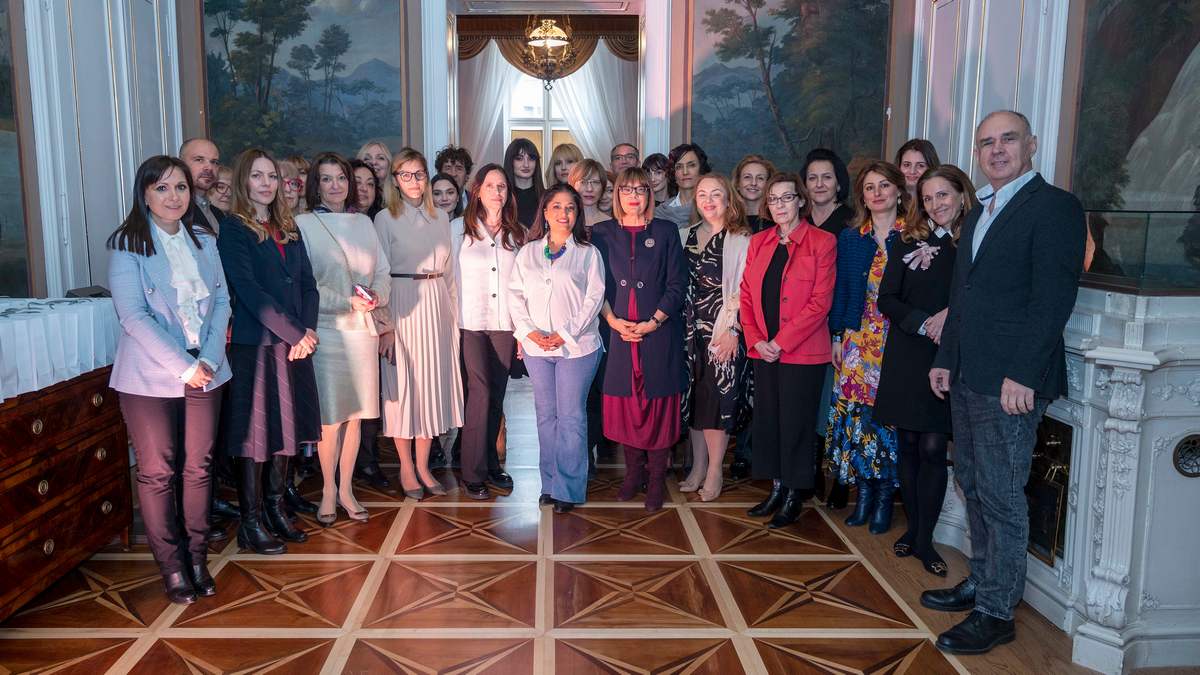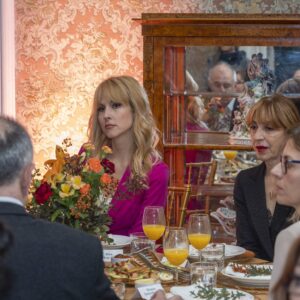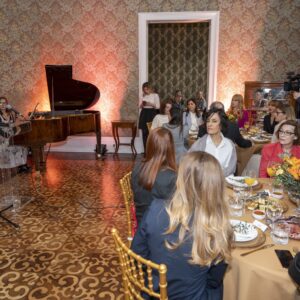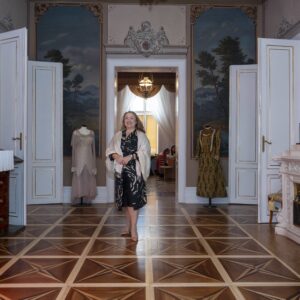Minister Gojković forwarded to the Museum of Yugoslavia an initiative to establish a Women’s Museum under the auspices of that institution

On the eve of International Women’s Day, the Ministry of Culture and the Belgrade City Museum hosted a traditional gathering of directors of cultural institutions, artists and representatives of the civil sector on March 3, with the topic of discussion being the position of women in culture.
At the working breakfast titled “Culture is Female”, held in the Spiritina House in Zemun, the Serbian Deputy Prime Minister, Minister of Culture and President of the Government’s Coordinating Body for Gender Equality, Maja Gojković, said that women could only improve their position in society by being united and highlighted the fact that the importance of women in culture was particularly noticeable.
On the occasion, Minister Gojković noted that she forwarded to the Museum of Yugoslavia an initiative to establish a Women’s Museum under the auspices of that institution.
“The idea is to dedicate it to all the women who were, are, and will be involved in culture. This is a global trend, and we have nothing to be ashamed of. I think it will be one of the most prestigious and most visited museums in the future”, said Ms Gojković.
Minister Gojković also pointed out that the visibility of the role and importance of women throughout history, as well as their modern contribution to culture and society as a whole, was still not adequate, and in order to make themselves more visible, they needed to gather scattered and neglected data and testimonies about women’s lives and their contribution to creativity in one place.
According to Ms Gojković, the goal of the Women’s Museum’s activities in Serbia would be to inform the public about the achievements and creativity of women from these areas, especially bearing in mind that similar museums abroad play an important role in recognizing and promoting the contributions, experiences and perspectives of women throughout history and in the modern era.
It is very important that striving to be equal with men is not viewed as a fight against men, but rather as finding our own ways
Ms Gojković pointed out that the legal framework in Serbia has been significantly improved in the last few years, that an increasing number of women were represented in politics and leadership positions and in terms of culture, we could say that “women absolutely rule”.
“It’s fascinating to see how much the culture in Serbia depends on women”, Ms Gojković said and added we have every right to say that „culture is female“, which is also the motto of the now traditional gathering on the occasion of March 8th, the International Women’s Day.
She reminded that the latest research data published by the Institute for Study of Cultural Development showed that in national cultural institutions, the highest number of employees – 59 percent of them – were women, and in local cultural institutions, the percentage was even higher – 60 percent.
Pointing out that International Women’s Day evokes memories of all the brave women that came before us, Ms Gojković said that that date was the best reminder that only united we could improve women’s position in society.
„In modern times, women are fighting for their rights in a completely different way. We have really achieved a lot”, said Minister Gojković who also noted that women should not have only one day celebrated in their honour, but the whole year if we want to make big changes in all life segments.
Ivana Bašičević Antić, PhD, Director of the Museum of Naive and Marginal Art, also addressed those present:
“In my opinion, Nancy Spero’s approach to women’s issues made her a quintessential fighter for women’s equality. This artist portrayed women as heroic figures and free actors and not as fragile victims. By evoking goddesses from Greek and Roman mythology, her art impresses the viewers with scenes depicting powerful women. She was also quite an active participant and took concrete steps. Thus, by establishing a gallery, she facilitated the creation of a space where women artists and herself could exhibit, which implied taking her rights into her own hands. At the same time, it is very important that striving to be equal with men is not viewed as a fight against men, but rather as finding our own ways. Spero said: “I want my work to be strong, but not in a masculine sense.” Powerful, she said, in the sense that it carries a certain message and a message can be powerful.”


